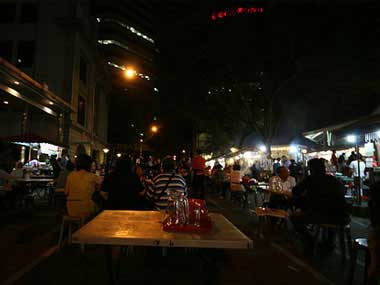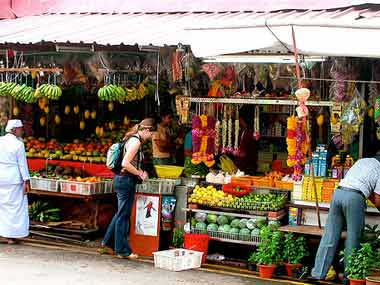Work-life balance is a key issue for Women in Singapore
As Singaporeans are notorious for working beyond their office hours, achieving a work-life balance remains a central issue in the city-state, particularly for women. According to a recent poll by the National Trades Union Congress (NTUC), 43% of respondents did not have enough time for their families, while four in five said they hardly had any personal time.
However, Singaporeans' lifestyle remains governed by a fierce competitive mindset, high employers' expectations, and a strong commitment to work. Thus, current values and behaviours hinder an effective work-life balance.
According to Robert Half's 2011 Workplace Survey, 69% of Singapore employees tune into work when they are out of the office or on holiday, higher than the regional average of 66%.
This situation is especially dramatic for women, to whom parenthood becomes an obstacle for their careers while their long hours keep them from looking after their children. As a consequence, Singapore's birth rate has dropped dramatically in the past years, to one of the lowest levels in the world.
The government fears that this phenomenon could threaten the economic stability built up over the past few decades. In order to reverse the trend of declining birth rates, the authorities have continuously tried to entice couples and women to have children through a myriad of schemes.
Last month, women in Singapore called for an end to baby making campaigns. Many agree that the key to increasing birth rates does not lie in boosting maternity leaves, but in improving work-life balance.
"We are so busy meeting our key performance indicators as workers, we don't have time to spend with our families," Nanyang Technological University assistant professor Debbie Goh told Bikya News.
She illustrated why Singaporeans are concerned about having children: "I talked to a teacher. She has four kids... She appreciates the schemes we have for working mothers... But she said, ‘If I took all these schemes, then I am pushing my work to my colleagues and other teachers and further more when it comes to assessment time, my head of department and my principal will not know what grade to give me. Even if you give me more of these leaves and perks, it will not help me with my career.'
So what would encourage Singaporeans to have children? She said ‘improve work-life balance.' Professor Goh said work-life balance depends on the attitudes of the employers, attitudes of the individuals and social norms - "everybody is working, so I have to work long hours too".
In order to help women find the perfect work/family balance, NTUC-PME has organised a webinar (27 June from 8.00 to 9.00p.m. via facebook.com/UpforPMEs) that will focus on "Leaders in the Tech Industry for its inaugural session. The guest will be Ms Jessica Tan -General Manager, Regional Enterprise Business, Microsoft Singapore- who has 20 years of experience in the Tech Industry, including 14 years with IBM. Netizens will be able to ask her how to achieve a successful career, how she found the perfect work-life balance, and how to face the challenges posed by being a woman. In this inaugural session, viewers might find useful tips and inspiration.




